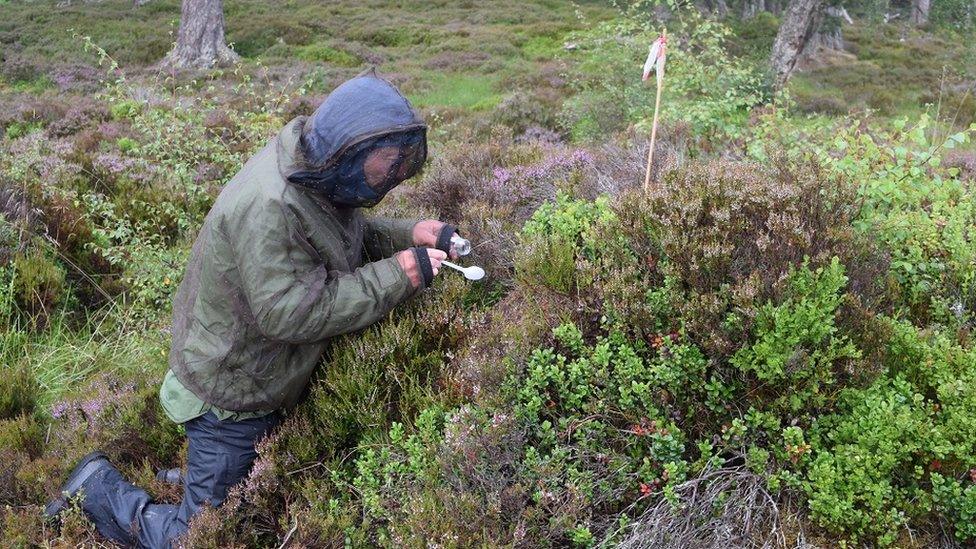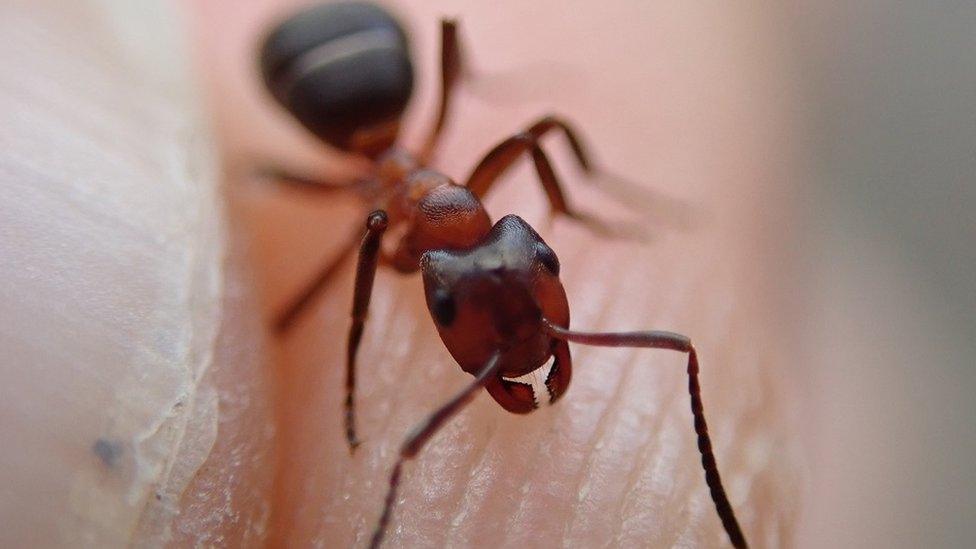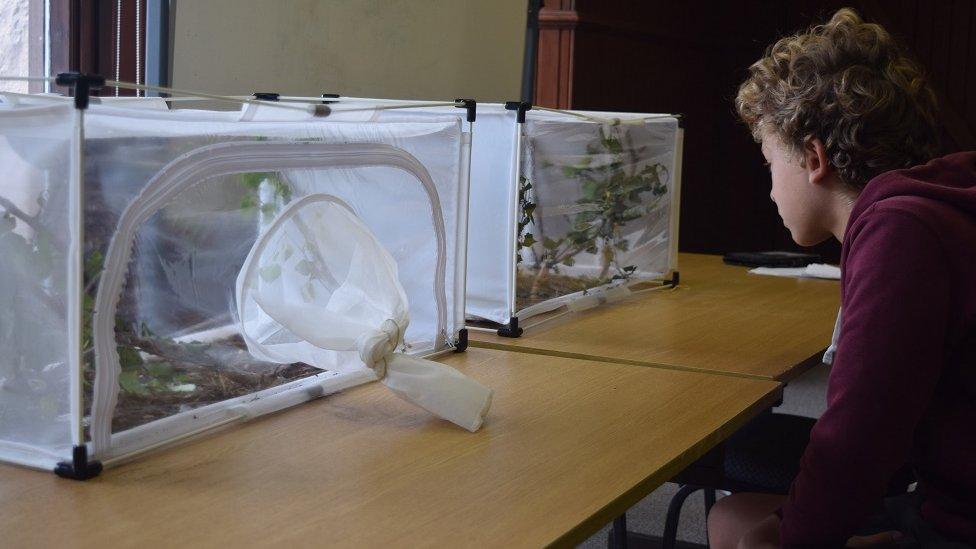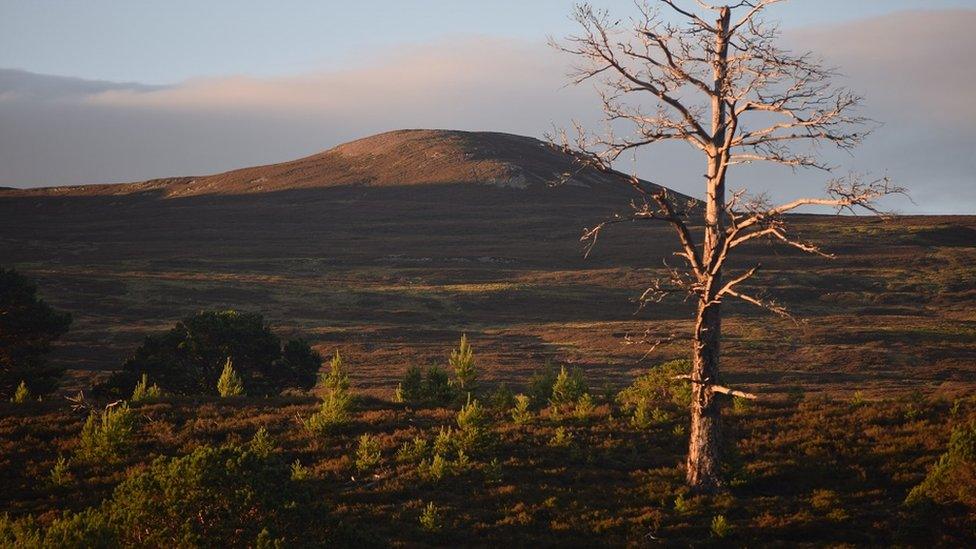Bid to boost numbers of one of UK's rarest ants
- Published

A conservationist catching males and queens while wearing protection against biting midges
Conservationists are attempting to boost numbers of one of the UK's rarest ants.
There are only six known sites of the narrow-headed ant, with the Cairngorms being a stronghold for the species.
Conservationists have been catching winged male and queen ants as they emerge from nests.
They are then placed in chambers indoors, protected from predators and bad weather, where they mate before the queens are released back into the wild.
The sites where the queens are released have the type of habitat the species thrive in, areas of pinewood with plenty of open space that allows sunlight in to warm the ants' nests.
Twenty-one mated queens have been released so far this year in the project in the Deeside area of the Cairngorms.

The narrow-headed ant is one of the UK's rarest ants
National Trust for Scotland (NTS) staff at Mar Lodge Estate have been working with the Cairngorm National Park Authority on the initiative, which has received £10,000 grant funding.
Those behind the project said catching the males and queens had not been an easy task.
NTS said: "This has involved staring at nests in the early morning for many hours with horrendous midgies and then being able to have lightening quick reactions to catch the winged ants when they suddenly appear on the nest.
"Over many mornings we successfully captured many male and queen ants."

The captured ants mate in chambers
The males die after mating while the newly-released queens seek out the nests of other wood ant species to lay their eggs.
In a behaviour called temporary social parasitism, the narrow-headed ants' eggs and young are raised by the other species as if they were their own.
The narrow-headed ant brood goes on to take control of the nest.
The project is to be repeated next year.

Queen narrow-headed ants are released into suitable habitat